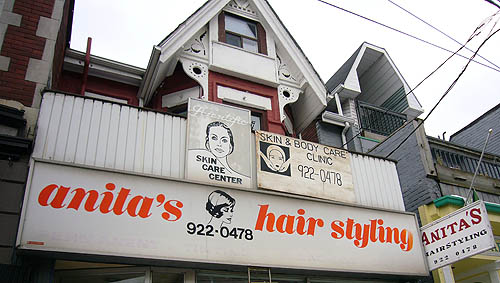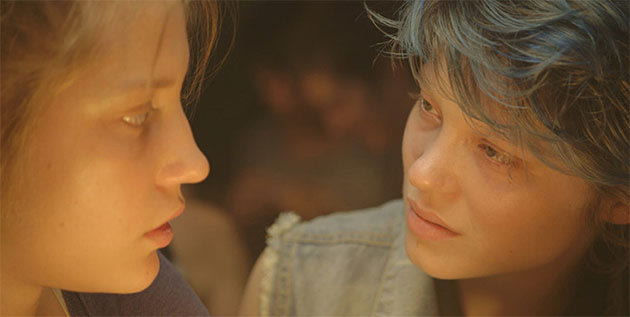"Why would I want to colour my hair?' I asked.
"You'll look 20 years younger?"
"Why would I want to look younger? I'm not looking for a new boyfriend."
"You might," said my 86-year-old mother.
 As I walked to the bus stop, I noticed several older cyclists smiling and nodding at me. If I were looking for a boyfriend, it would be one of those grey-beards.
As I walked to the bus stop, I noticed several older cyclists smiling and nodding at me. If I were looking for a boyfriend, it would be one of those grey-beards.I like my grey hair.
When my mother was in her 40s, her hair turned grey almost overnight. My father was dying and she had five children to raise. After 10 years of widowhood, she married again. This handsome, white-haired man insisted that she colour her hair and she was happy to comply. "Grey looks distinguished on men," she said. "On women, it just looks old." My step-father passed on, but my mother continues the treatments. "I'll stop dyeing my hair when I get wrinkles," she says.
I have friends who change their hair colour every month. I'm probably missing out on opportunities for self-reinvention, but I have trouble sitting still even for a cut.
In 2005, I moved to Cabbagetown, a gentrified Toronto neighbourhood surrounded by lower-income housing developments. Looking for a hairdresser, I wandered into one of the salons and asked how much for a wash and cut. The receptionist said $40.
"Oh," I said, turning back towards the door.
"But you get an $80 haircut," said a customer at the counter, $40 in hand.
 A block away was Anita's Hair Styling. Above the hair-styling sign was a sign saying, Scientific Skin Care Center and another next to it that said Skin and Body Clinic. On the window it said, Anita's Unisex & Suntan Studio. Anita's offered synthetic wigs, eyebrow tinting, ear piercing, massage, electrolysis, herbal remedies, facials, and more. Anita was a Jill of all aesthetics. Used clothes were on a rack out front. Inside were piles of magazines and sale items. Amidst the clutter, one could find a haircutting chair, an old-fashioned hair dryer, and a sink set up for washing.
A block away was Anita's Hair Styling. Above the hair-styling sign was a sign saying, Scientific Skin Care Center and another next to it that said Skin and Body Clinic. On the window it said, Anita's Unisex & Suntan Studio. Anita's offered synthetic wigs, eyebrow tinting, ear piercing, massage, electrolysis, herbal remedies, facials, and more. Anita was a Jill of all aesthetics. Used clothes were on a rack out front. Inside were piles of magazines and sale items. Amidst the clutter, one could find a haircutting chair, an old-fashioned hair dryer, and a sink set up for washing.I couldn't place Anita's accent, maybe Romany,
and she might have been in her mid-to-late 70s. She was cutting the hair of an even more elderly customer.
"How much for a wash and cut?" I asked.
Anita looked me up and down. She looked at my limp, long, unruly hair. Even my split ends were split. "Twenty dollars," she said.
"But you get a $40 haircut," added the customer.
I went to Anita about once a year for the next several years. Anita never suggested that I colour, tint, streak, or perm my hair into modernity.
In late 2011, Anita's shop went dark. For a long time, the outside remained the same, but today I noticed that a cell phone company had painted Anita's storefront orange and moved in.
I have to face reality. Anita is gone. Next week I'll meet my mother's stylist. When he suggests some colour, I'll ask him to make me more grey.
As for Anita, I'd like to think that she saved her pennies and has gone to cut hair somewhere warm.

